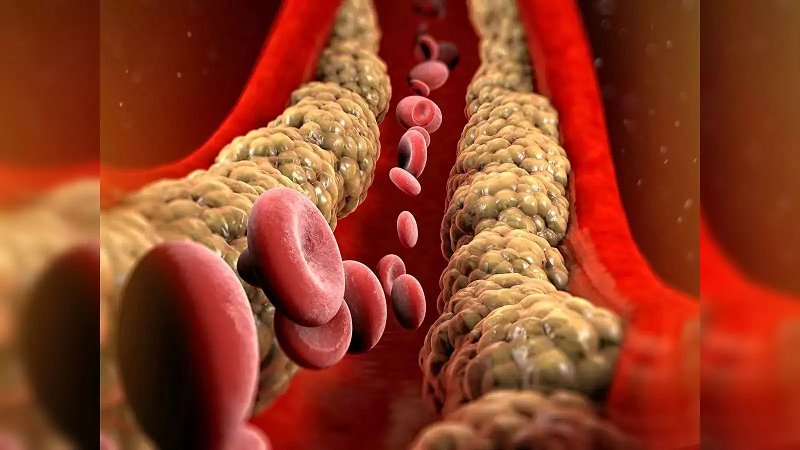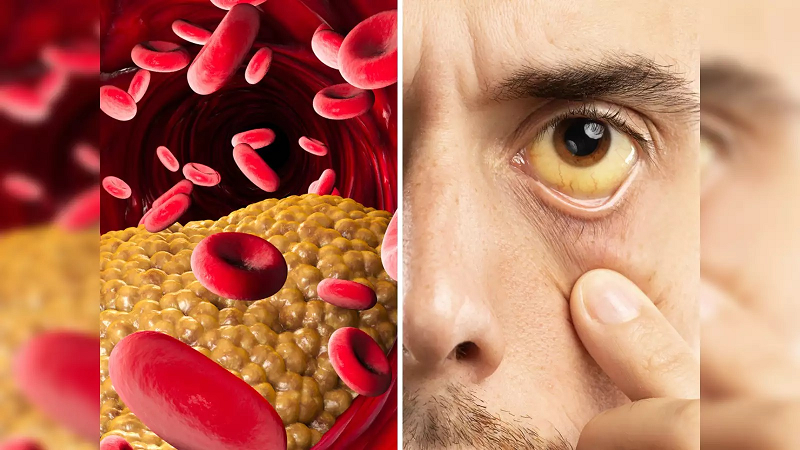By Jitendra Jangid- We all have become so busy in the hustle and bustle of our life and work that we are not able to pay attention to our food and lifestyle, due to which many types of health problems arise. Due to bad eating habits, bad cholesterol increases in our body, due to which you have to face problems like heart attack, when bad cholesterol increases in the body, it shows many symptoms, if these symptoms are ignored, then the results can be fatal, let's know about these symptoms-

What causes high cholesterol?
Unhealthy diet: Eating too much fatty or processed food, such as meat pies, butter and cakes.
Lack of physical activity: Inadequate exercise can lead to weight gain and increased cholesterol levels.
Obesity: Being overweight increases the risk of developing high cholesterol.
Smoking: Smoking damages blood vessels and can lead to high cholesterol levels.
Excessive alcohol consumption: Drinking excessive amounts of alcohol can lead to high cholesterol.
Why many people don't know about high cholesterol?
Many people with high cholesterol are completely unaware of their condition. This is because high cholesterol usually shows no obvious symptoms. The only way to confirm high cholesterol levels is through a blood test, which is why regular checkups are essential to monitor your heart health.
Recognizing risk factors and warning signs
Age: People aged 40 and older are at higher risk.
Overweight: Being overweight or obese increases your chances of developing high cholesterol.
Family history: If your family has a history of high cholesterol or heart disease, your risk is higher.

In some cases, peripheral artery disease (PAD), which is caused by blockages in the arteries, can be a complication of high cholesterol.
Pain or sores
Gangrene (tissue damage)
Hair loss on the feet or soles
Numbness or weakness in the feet
Slow-growing, brittle nails
Changes in skin color (pale or blue color)
Shiny skin
Erectile dysfunction in men
Muscle shrinkage in the legs

For people with familial hypercholesterolemia, a genetic condition that leads to high cholesterol,
Swelling on the back of the hands, knees or Achilles tendons
Yellow cholesterol lumps near the eyes
White coating around the pupils
How to reduce the risk of high cholesterol-
Eat a healthy diet: Include more unsaturated fats in your diet, such as those found in salmon, nuts and olive oil. Choose whole-grain bread, fruits and vegetables to increase fiber intake.
Exercise regularly: Aim for at least 2.5 hours of physical activity per week. Regular exercise can help lower cholesterol levels and maintain a healthy weight.
Quit smoking and limit alcohol consumption: Quitting smoking and drinking alcohol in moderation (or not at all) can greatly improve cholesterol levels and overall heart health.










